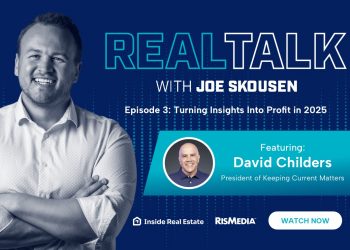RISMEDIA, August 10, 2009-(MCT)-Personal spending rose in June, but incomes fell, exposing the weak underbelly of the economy.
With personal income declining, consumers are going to be hard-pressed to make the purchases necessary to pull the economy out of recession and keep it from falling back into decline. The figures released by the Commerce Department last week showed personal income fell more than economists were expecting, or 1.3%, compared with the median forecast of a 1% decline.
Personal spending also remains sluggish. It climbed 0.4% in June, the second consecutive increase, but economists attributed the growth to spending on higher-priced gasoline, not carefree shopping. If gasoline prices continue to increase, the extra burden will make it difficult for heavily indebted and unemployed consumers to shop.
Because consumer spending makes up 70% of the economy, analysts are watching the data closely. “There were no green shoots (optimistic signs) at all in these data,” said economist Ian Shepherdson of High Frequency Economics. “Wages and salaries are dropping steadily every month.” Although Shepherdson said he expects a boost in spending in the third quarter from the cash-for-clunkers program, “the fourth quarter will be down again.”
Recently, investors have looked past the 9.5% unemployment rate, furloughs and pay cuts and focused instead on second-quarter corporate earnings reports, which have been stronger than expected. Although earnings are on course to be down about 30% year over year for the quarter, a worse decline had been anticipated. Optimism carried the Standard & Poor’s 500 index up 7.4% in July, the best July since 1997.
But skeptics have pointed out that while 75% of companies have beaten second-quarter earnings expectations, cost cutting, including layoffs, has been a major reason behind earnings surprises. And layoffs can cut two ways: strengthening corporate profits in the short term, but impairing the ability of consumers to buy from companies and generate growth in the economy in the long term.
Goldman Sachs economist Jan Hatzius is among those expecting a stronger economy in the near term, but he is concerned about 2010. He expects the recovery to be sluggish next year and the economy to remain vulnerable to a relapse back into recession. “Consumption is apt to be constrained by weakness in labor income and ongoing efforts to boost saving,” Hatzius said.
Although some consumers are being enticed to dump clunkers and buy new cars, some economists think consumers will remain frugal and save because they have lost about $14 trillion on housing and stocks, are still having trouble borrowing money and can’t be certain about their jobs. “If past is prologue, the large setbacks that households have suffered in their net worth positions over the last two years should push the saving rate into the 6% to 10% range,” Hatzius said.
“We expect consumers to pursue a long process of deleveraging and rebuilding savings to 7 percent to 10 percent of disposable income,” said Morgan Stanley economist Richard Berner.
With consumers saving rather than spending, economic growth is expected to remain lethargic. Prior to the housing bubble bursting, consumers had borrowed heavily on their homes, and the savings rate fell to zero.
Economists think inventory replenishment, in addition to the clunker program, will help the economy over the next few months. Inventories are down to bare-bones levels. But longer term, they question how the world will bounce back from recession if Americans horde cash. Bullish American investors have been counting on increased demand in Asia, in particular, to make up for the injured U.S. consumer. But Asian analysts think that’s unrealistic.
“As U.S. households now rediscover the need to save and are unlikely to take on leverage with the same vigor, Asian exporters will find it harder to extract growth,” said Morgan Stanley’s Chetan Ahya. Exports from Asia have declined more sharply than in previous recessions. And although many countries are attempting to stimulate their economies with infrastructure and housing investments, Ahya notes “recovery is likely to lack vigor.”
(c) 2009, Chicago Tribune.
Distributed by McClatchy-Tribune Information Services.










